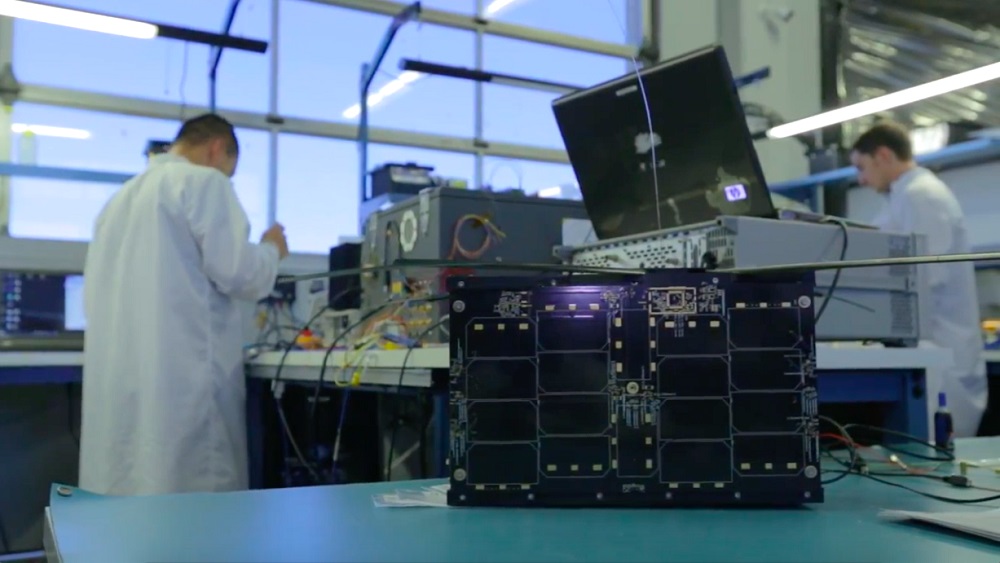Products You May Like
LOGAN, Utah. — Astro Digital started out in 2015 with plans for an Earth observation constellation but pivoted three years later to instead provide its small satellite technology as a service for other operators.
While this service model was unusual at the time, California-based Astro Digital has grown as more companies seek space projects without manufacturing, launch integration, and other burdens that typically come with them.
SpaceNews caught up with Chris Biddy, Astro Digital’s co-founder and CEO, at the Small Satellite Conference here.
What happened to your constellation plan — are you still considering it?
For the moment, we’re not. We took an honest look at the competitive landscape and the ability to raise funds for a large constellation of satellites and decided it was just better for our business to focus on core capabilities. To go out and generate revenue and build a positive cash flow business earlier, compared with having to raise a bunch of money, deploy a lot of satellites, and then generate revenue on the data.
What’s the size range of the satellites you’re making?
We’ve been trending larger. We still offer our 6U cubesats on the smaller side, but we’ve lately been building satellites that are in the 100-kilogram class and, very shortly, stuff that will be exceeding 200 kilograms.
What’s driving that?
Available launch capacity has increased quite a bit over the last several years, and I think that takes a little bit of pressure off satellite size constraints. It seems to make it a little easier to build the satellite bus around the mission and the payload requirements without having to aggressively miniaturize.

Where are you seeing the most demand, and for what applications?
The biggest demand we’re seeing right now is still for the small satellite industry’s bread and butter applications: remote sensing and communications.
The newer demand and interesting applications we’re supporting could probably be categorized as in-orbit infrastructure and transportation. We’re supporting our friends at Spaceflight on their Sherpa orbital transfer vehicle, where we’re providing some technologies and flight operations.
We’ve also got some other missions we’re working on that we haven’t been public about yet around in-orbit infrastructure and transportation.
How have supply chain shortages stemming from the pandemic affected Astro Digital?
It’s pushed lead times out a little bit. We’ve had to design around shortages of parts. It’s created a bit more effort in managing the supply chain, where we’re seeking out those hard-to-find components and constantly looking for alternatives. In some cases, we’ve had to design out parts that we just couldn’t get.
How long do you think the industry will face these challenges?
I’m not sure. We’re seeing positive signs that it’s improving, and my hope is that we’re past this by the end of the year — that may be a little bit optimistic, but we’re at least seeing positive signs.
What’s next for Astro Digital?
Smallsats are now mainstream. They’re no longer pure academic or pure technology demonstrations. Our hypothesis has turned out correct and we’ve been able to make a real business out of this.
We just more than doubled our footprint with another almost 18,000 square feet [1,700 square meters] of facility space, and we’ve doubled our team in the last 12 to 18 months. Even though we’re pretty quiet, we’re getting a lot of interest in our products and services. It’s a really great time to be in the industry.
This interview has been edited for length and clarity
